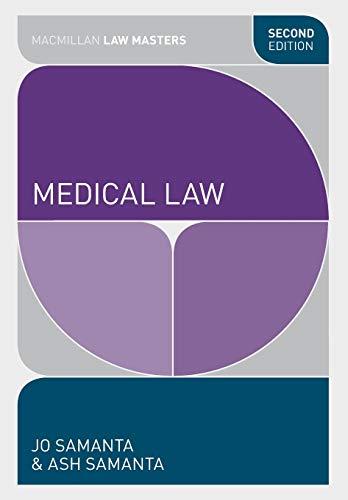, Lawapplies to employers An employer will often impose a similar restr'iCtive covenant Yqulil'in ' 113 as We" employees to promise not to compete during, or after, their employmem lic Although the same test of reasonableness is used, the courts are much more ab reluctant to nd such restrictive covenants validi It is only when the employeg is be in a unique position to harm the company (for example, by having Special ach to customers or secret information) that these prmisions will be enforced. This will be diseussed in more detail in Chapter 10. CASE SUMMARY 7.10 Too Broad to Be Enforced: Mason 0. Chemde Limited Partnership31 Mason was terminated after 17 years of employment. He applied to have the restrictive covenant in his employment contract declared unenforceable. This covenant read as follows: I agree that if my employment is terminated for any reason by me or by the Company, I will not, for a period of one year following the termination, directly or indirectly. for my own account or as an employee or agent ofany business entity, engage in any business or activity in competition with the Company by providing services or products to, or soliciting business from, any business entity which was a customer of the Company during the period in which I was an employee of the Company, or take any action that will cause the termination of the business rela- tionship between the Company and any customer, or solicit for employment any person employed by the Company. Mason acquired signicant knowledge about Chem-Trend, its products, and its cus tomers. ChemJ'renol, however, guarded and protected its operations carefully so that Mason had little knowledge of the workings of Chem-Trend's laboratory, compound lists, or formulas, The Court held that the restrictive covenant was clear and unambiguous. It con- cluded, however, that the covenant was unreasonable and unenforceable, as it was overly broad and unworkable in practice. There was a complete prohibition on Mason competing with Chem-Trend, even though another covenant prevented Mason from disclosing Chem-Trend's trade secrets or confidential information. Mason was a techni- cal sales person who operated in a limited sales territory, but he was prohibited from soliciting all of Chem'Trend's former customers and from any dealing with them. It was not possible for Mason to know with which potential customers he was prohibited from doing business. He was'therefore effectively prohibited for one year from dealing with any business that may have been a customer of Chem-Trend a SMALL BUSINESS PERSPECTIVE What should the owner of a small business do to ensure that a restrictive covenant in an employment contract that has been signed by an employee will not be struck down by the courts? Is it a good idea to simply drait the provision as broadly as possible? The Court in Mason referred to thejudgment of the Supreme (Iourt of Canada in Slur/rm: 1/. KRG lmurmu'PBiukm {lli'smm Inc.52 The headnote of the case contains the following: 3' 20H ONCA 344 iCanLil), leave to appeal to 5.C C reiused, 2012 CanLll 6% (SCC). 32 [2009] l 5 CR 157, 2009 SCC a, Chapter 7 The Elements oi a ContractCapacity, Legality, and Intention 225 Restrictive covenants generally are restraints of trade and contrary to pub- * lic policy. Freedom to contract, however, requires an exception for reason- able restrictive covenants. Normally, the reasonableness ofa covenant will be determined by its geographic and temporal scope as well as the extent of the activity sought to be prohibited. Reasonableness cannot be determined if a covenant is ambiguous in the sense that what is prohibited is not clear as [0 activity. time, or geography: An ambiguous restrictive covenant is by denition, pn'rrmfacir, unreasonable and unenforceable. The onus is on the party seeking [0 enforce the restrictive. covenant to shtm that it is reason- able and 31 party seeking to enforce an ambiguous covenant will be unable to demonstrate reasonableness. Restrictive covenants in employment contracts are scrutinized more rigorously than restrictive covenants in a sale of a busi- i ness because there is often an imbalance in power between employees and employers and because a sale nfa business often involves a payment for good- will whereas no similar payment is made to an ettiployeeileaving his or her employtnenti In this case, the restrictive covenant arises in an employment contract and attracts the higher standard of scrutiny. The Court went on to say that notional severance (reading down a contractual provision to make it legal and enforceable) is not appropriate to apply to an unrea sonable restrictive covenant This approach would encourage employers [0 draft overly broad restrictive covenants. \"Blue-pend\" severance (retnming part of the restrictive covenant) may be used when part of the restrictive covenant is severable, tritial, and not part of the main purpose of the restrictive covenant. ' REDUCING RISK 7.4 There is a great temptation for a purchaser ofa business, or an be against the public interest. They must go no further than is employer, to protect herself from competition. Purchasers of necessary to prevent unfair competition They should have a a business and employers are particularly vulnerable to unrea







